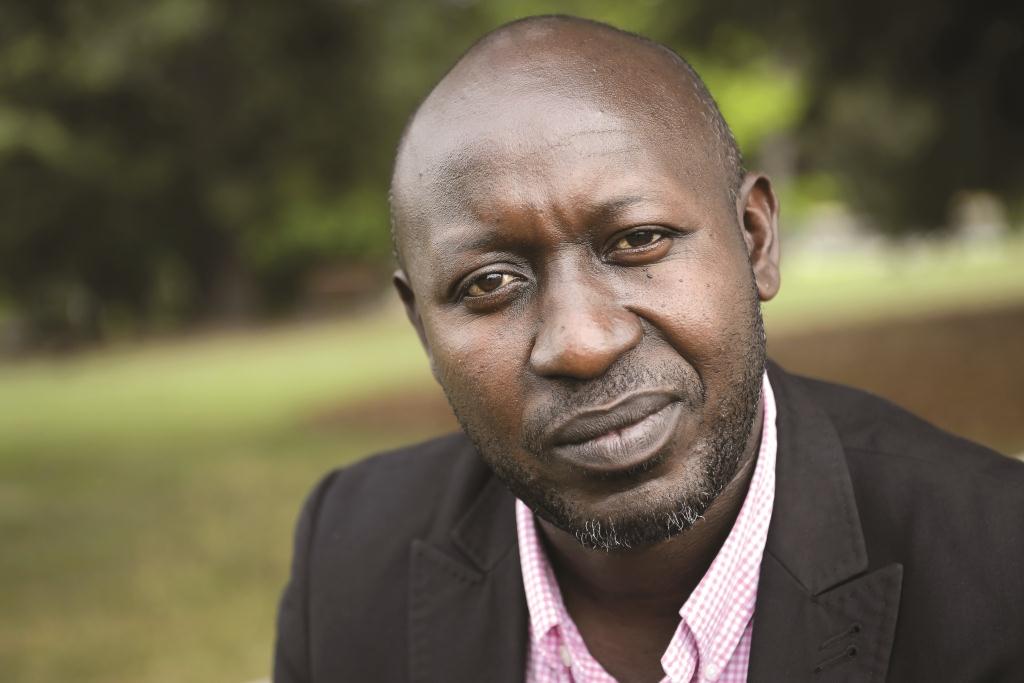Africa’s brave investigative journalist, Bob Rugurika, has no place to call home and is living in fear of arrest and his life. Rugurika’s crime was to do his job by exposing human rights violence in his country. He’s one of over 100 Burundian journalists living in exile.
“As an investigative journalist, when I decide to go on, I become very attached to a story. I am very attached to my cause, to my mission, and that is informed by our radio editorial philosophy, it is to promote accountability to the members of government. We want to create a country without violence. If we are in a country with violence encouraged by authorities, then we can’t say we are in a country, we are in a (war) jungle. If we give up, this world will deteriorate,” says Rugurika, the Managing Director of African Public Radio; banned, but operating on the web.
The steadfast radio journalist, who was this year’s winner of the Press Freedom Award at the CNN Multichoice African Journalist Awards, presented this year’s Carlos Cardoso memorial lecture at the University of the Witwatersrand (Wits). Cardoso was the slain Mozambican journalist who cut his teeth in social activism at the college in South Africa. Cardoso was a Wits student when the apartheid government deported him. Like Rugurika, Cardoso was also a thorn in the side of his corrupt government and was assassinated in 2000 when he was investigating a bank linked to the son of the president.

BURUNDI-POLITICS-UNREST-RADIO
“I grew in a weak society – Burundi. There were too many cases of human rights violations. There was a bad conception of power in the minds of the politicians and authorities. Then, I had a dream of becoming a lawyer or a policeman to reduce all those cases of injustice. But when I graduated in university I realized that those two sectors were the most corrupt in Burundi. Then I decided to join the African Public Radio – a voice-of-the-voiceless radio – we documented human rights violations against the members of the public,” says Rugurika.
Loading...
Mathatha Tsedu, an adjunct professor at Wits and veteran journalist, said Burundian officials were at the university looking for Rugurika. They wanted him arrested because he is a fugitive in his country.
In January 2015, Rugurika was held for more than a month after he interviewed a former government soldier who was in hiding. The soldier was part of the paramilitary who were allegedly instructed by the government officials to murder three Italian nuns who worked in Burundi. Rugurika’s case caught the attention of the international civil community, and thousands of Burundians demanded his release. He was released in March.
Burundi was supposed to go the polls in 2015, but the government decided to use its paramilitary to threaten civilians who protested the decision to stall elections. The Italian nuns were witnesses and ready to testify, so the national intelligence decided to kill them, said Rugurika.
“Since 2010, they tried to corrupt several journalists. I am not accusing my colleagues. Some are victims of this corruption, they fear for their lives if they refuse to take the money. It was the same case with me… They told me I have two choices, either I take the money, or face jail, or be killed. I refused the money and risked being killed. Deep in my heart I decided to publish the reports (about the death of nuns). It was my contribution to show the world that we have a criminal government. I don’t have fear to state that,” he says.
“The government didn’t release me to give me my freedom, they planned to kill me. On 29 March (2015) three armed guys were sent to kill me in my home. Fortunately, they went to look for me in a neighbor’s home.”
Rugurika went into exile in neighboring Rwanda and later Brussels.
Rugurika says before the government started persecuting journalists, there were attempts to enforce a law for journalists to reveal sources, but Burundians fought against it. This failure led to the formation of Rema FM, a government propaganda radio station. All the independent media houses were banned and are under police surveillance.
It may be unsafe for journalists like Rugurika for some time yet.
Loading...
